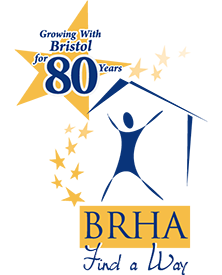The Dept. of Health and Human Services (DHHS)/Centers For Disease Control (CDC) has expanded the eviction moratorium through the end of the year (12/31/2020). This does not lift a tenant’s rent obligation.
The order is currently scheduled to be published in the Federal Register on September 4. It becomes effective on publication and will last until December 31, 2020, unless extended.
Here are some highlights:
- This Order continues the expired CARES ACT evictions moratorium. The CARES Act eviction moratorium expired on July 24, 2020.
- This is a public health order. Instead of couching this eviction order as a HUD/ housing issue, the Trump Administration has couched this order as a DHHS/CDC COVID-19, public health-related protection measure designed to stop the spread of the virus, under authority of the Public Health Service Act and 42 CFR §70.2.
- There will be no “process.” DHHS says this Order is not a “rule” subject to the APA. DHHS goes to great lengths to explain why it believes that the rulemaking protocols under the Administrative Procedure Act (“APA”) do not apply because DHHS classifies this action as an “emergency action” taken under the authority of 42 CFR §70.2, rather than as a “rule” under the APA. DHHS also makes the alternative argument that, if the APA applies, there is good cause under both the APA and the Congressional Review Act to dispense with prior public notice and comment, which would delay the Order’s effective date.
- There are significant criminal penalties for violation of the Order, including fines and incarceration. It states that violators will be subject to: “a fine of no more than $100,000 if the violation does not result in a death or one year in jail, or both, or a fine of no more than $250,000 if the violation results in a death or one year in jail, or both, or as otherwise provided by law. An organization violating this Order may be subject to a fine of no more than $200,000 per event if the violation does not result in a death or $500,000 per event if the violation results in a death or as otherwise provided by law. The U.S. Department of Justice may initiate court proceedings as appropriate seeking imposition of these criminal penalties.”
- This Order applies to all landlords. Page 5 of the order titled “Applicability” states that “Under this Order, a landlord, owner of a residential property, or other person with a legal right to pursue eviction or possessory action, shall not evict any covered person from any residential property in any jurisdiction to which this Order applies during the effective period of the Order.”
- This Order applies to all tenants and homeowners who provide a Declaration. A “Covered Person” is any tenant, lessee, or resident of a residential property who provides to their landlord, a Declaration” (discussed below). It applies beyond assisted housing. It is unclear whether holdovers and squatters who could be construed as “residing” in a property would be “Covered Persons.”
- The Order’s moratorium only covers evictions based on nonpayment issues. By its terms the Order “does not preclude evictions based on violations of contractual obligations, other than the timely payment of rent or similar housing-related payment (including non-payment or late payment of fees, penalties, or interest).” (emphasis added).
- Tenant rental obligations under their lease continue. The Order makes clear that landlords can “continue to charge and collect fees, penalties, and interest as a result of the failure to pay rent or other housing payment on a timely basis, under the terms of any applicable contract.” Landlords just can’t execute on any breach until after December 31, 2020 when the Order expires (unless extended).
- Evictions based on criminal and threatening activity toward persons, property, or public health/ safety are not included. The Order does not preclude “evictions based on a tenant, lessee, or resident: (1) engaging in criminal activity while on the premises; (2) threatening the health or safety of other residents; (3) damaging or posing an immediate and significant risk of damage to property; (4) violating any applicable building code, health ordinance, or similar regulation relating to health and safety…”
- Tenants must file a Declaration. To claim protection under the Order, tenants must self-execute a Declaration. The Declaration does not appear to require third party verification or documentary proof. The only requirements are that it be filed under penalty of perjury and indicate:
- The individual has used best efforts to obtain all available government assistance for rent or housing;
- The individual either: (i) expects to earn no more than $99,000 in annual income for Calendar Year 2020 (or no more than $198,000 if filing a joint tax return), (ii) was not required to report any income in 2019 to the U.S. Internal Revenue Service, or (iii) received an Economic Impact Payment (stimulus check) pursuant to Section 2201 of the CARES Act;
- The individual is unable to pay the full rent or make a full housing payment due to substantial loss of household income, loss of compensable hours of work or wages, a lay-off, or extraordinary out-of-pocket medical expenses;
- The individual is using best efforts to make timely partial payments that are as close to the full payment as the individual’s circumstances may permit, taking into account other nondiscretionary expenses; and
- Eviction would likely render the individual homeless— or force the individual to move into and live in close quarters in a new congregate or shared living setting— because the individual has no other available housing options.
- The Order does not “trump” more protective state or local laws. The Order “does not apply in any State, local, territorial, or tribal area with a moratorium on residential evictions that provides the same or greater level of public-health protection than the requirements listed in the Order.” Accordingly, it’s important to stay abreast of your state’s evolving state of moratoriums, if applicable.
- The Order addresses HUD & Treasury Resources. The Order states that HUD “has informed CDC that all HUD grantees—states, cities, communities, and nonprofits—who received Emergency Solutions Grants (ESG) or Community Development Block Grant (CDBG) funds under the CARES Act may use these funds to provide temporary rental assistance, homelessness prevention, or other aid to individuals who are experiencing financial hardship because of the pandemic and are at risk of being evicted, consistent with applicable laws, regulations, and guidance.” HUD’s dedicated COVID-19 webpage is accessible at: https://www.hud.gov/coronavirus.
HUD’s COVID-19 website contains toolkits for PHAs, HCV landlords, and owners and renters in HUD-assisted multifamily properties, related to housing stability and eviction prevention. Similarly, the Treasury Department reports that the Coronavirus Relief Fund may be used to fund rental assistance programs to prevent eviction. See https://home.treasury.gov/policyissues/cares/state-and-local-governments.

